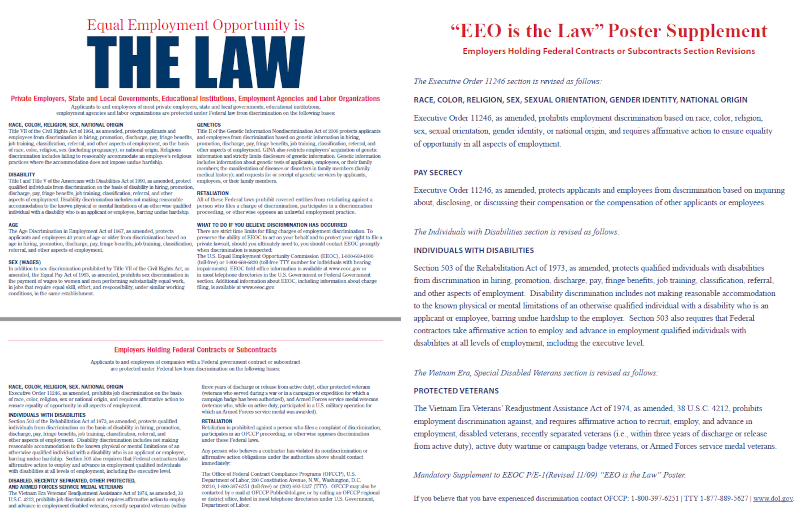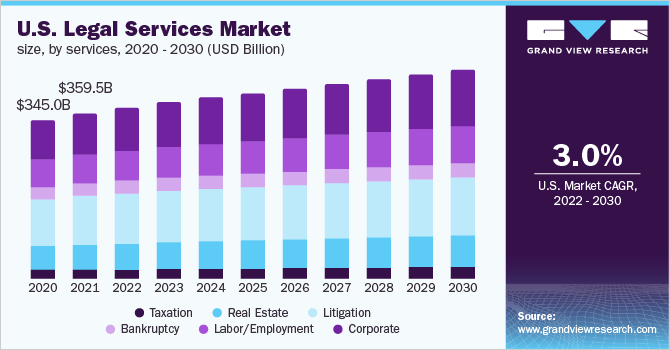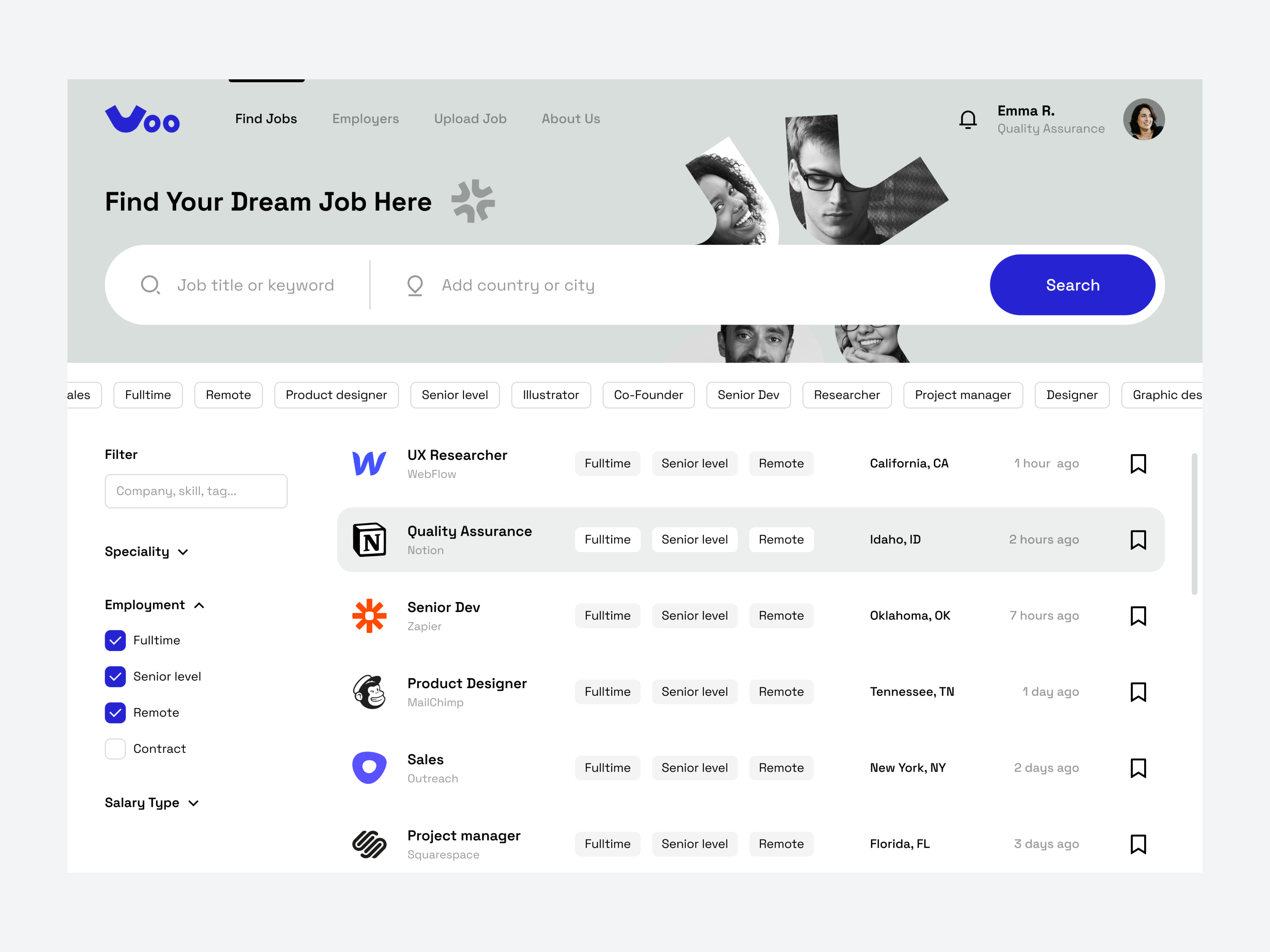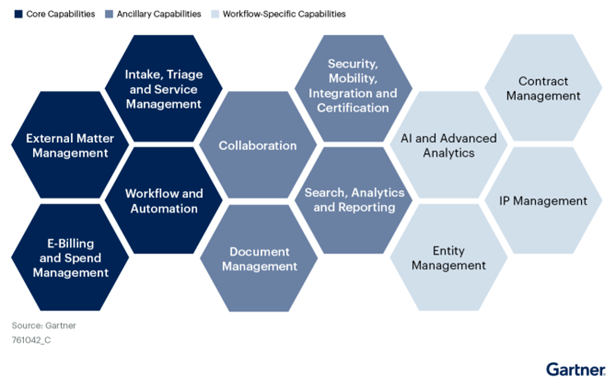Table of Contents
In the digital age, job-search platforms have become essential tools for both job seekers and employers. These platforms offer a convenient way to connect job seekers with potential employers, streamlining the hiring process. However, as the digital landscape evolves, so does the legal framework governing these platforms. In this article, we will delve into the legal landscape of job-search platforms, exploring the rights and responsibilities of all parties involved, and the regulations that shape this online job market.
nullLooking for more insights? You’ll find them right here in our extended coverage: HOR 207 Landscape Plans I
Equal Opportunity Employment Laws
One of the most critical aspects of the legal landscape for job-search platforms is compliance with equal opportunity employment laws. These laws, such as the Civil Rights Act in the United States, prohibit discrimination based on factors like race, gender, religion, and disability. Job-search platforms must ensure that their algorithms and processes do not inadvertently lead to discrimination in job listings or candidate recommendations.
Ensuring compliance with equal opportunity employment laws is not just a legal obligation for job-search platforms; it’s a fundamental ethical responsibility that shapes the very essence of these platforms. Here’s an in-depth exploration of the importance of adhering to these laws and the measures that platforms should take to prevent discrimination:
Legal Obligation: Equal opportunity employment laws exist to promote fairness and prevent discrimination in the workplace. Job-search platforms must adhere to these laws as they serve as intermediaries in the hiring process, connecting job seekers with employers.
Diverse Workforce: Promoting diversity and inclusion in the workplace is not only a legal requirement but also a strategic advantage for employers. Diverse teams bring a range of perspectives, fostering innovation, creativity, and better decision-making.
Algorithmic Fairness: Job-search platforms rely on algorithms to match job seekers with suitable positions. It is crucial to ensure that these algorithms are designed and tested rigorously to minimize bias. Regular audits and reviews of algorithms are essential to identify and rectify any unintended biases.
Transparency: Platforms should be transparent about how their recommendation algorithms work. While the intricacies may be complex, providing an overview of the process and steps taken to prevent bias can foster trust among users.
User Education: Job seekers and employers should be educated about the platform’s commitment to equal opportunity. Guidelines for creating job listings that adhere to these principles can be made readily available.
Bias Mitigation: Platforms should invest in technologies and tools that actively mitigate bias in job listings and recommendations. This includes addressing biased language, targeting, and other potential sources of discrimination.
Regular Audits: Ongoing audits and testing of the platform’s processes are essential. This can involve third-party audits to assess algorithmic fairness and compliance with equal opportunity laws.
User Reporting: Platforms should provide mechanisms for users to report any instances of discrimination or bias they encounter. Prompt investigation and resolution of such reports are crucial for maintaining a trustworthy platform.
Collaboration with Experts: Collaborating with legal experts, ethicists, and diversity and inclusion specialists can help platforms stay updated on best practices and emerging issues related to equal opportunity employment.
Legal Partnerships: Establishing partnerships with legal organizations or governmental agencies that specialize in employment discrimination can be valuable. These partnerships can provide guidance and support in navigating complex legal requirements.
Global Considerations: Equal opportunity employment laws vary by country. Platforms operating internationally should be well-versed in the legal requirements of each region they serve and adapt their practices accordingly.
Continuous Improvement: The fight against discrimination is an ongoing process. Platforms should continuously assess their efforts, adapt to changing legal landscapes, and invest in research and development to stay at the forefront of fair and inclusive hiring practices.
In conclusion, compliance with equal opportunity employment laws is not only a legal necessity but also a moral imperative for job-search platforms. Upholding these principles not only ensures fairness but also contributes to building a more diverse, inclusive, and innovative workforce. It is the responsibility of platforms to continuously strive for equity and actively work to eliminate discrimination from the job search and hiring processes.
Don’t stop here; you can continue your exploration by following this link for more details: How to Comply With Hiring Laws and Reduce Legal Risk | Monster …

User Data and Privacy
The collection and use of user data on job-search platforms are subject to data privacy regulations. Platforms must be transparent about how user data is collected, stored, and shared. Compliance with regulations such as the European Union’s General Data Protection Regulation (GDPR) is essential in ensuring that user privacy is protected.
The collection and use of user data on job-search platforms are subject to data privacy regulations, reflecting the growing emphasis on safeguarding individuals’ personal information. Here’s a deeper dive into the importance of data privacy compliance in the context of job-search platforms:
User Trust and Confidence: Compliance with data privacy regulations is foundational to building and maintaining user trust. When individuals entrust their personal data to a platform, they expect it to be handled with care and respect for their privacy rights. Demonstrating this commitment helps instill confidence among users.
Transparency and Informed Consent: Data privacy regulations require platforms to be transparent about their data practices. This includes providing clear and concise explanations of how user data is collected, processed, and shared. Users should have the opportunity to give informed consent for data processing activities.
Data Minimization: Platforms must adhere to the principle of data minimization, which means collecting only the data necessary for the intended purpose. This ensures that personal information is not overly intrusive or excessive for the services provided.
Security Measures: Compliance entails implementing robust security measures to protect user data from unauthorized access, breaches, or misuse. This includes encryption, access controls, and regular security audits to identify vulnerabilities.
Data Portability and Access: Data privacy regulations often grant users the right to access their own data and request its portability. Platforms must facilitate these requests, allowing users to review, update, or transfer their information as needed.
Accountability and Governance: Platforms are accountable for their data processing activities. This involves appointing data protection officers, conducting impact assessments, and maintaining records of data processing activities, ensuring that they align with regulatory requirements.
International Compliance: For platforms operating globally, compliance with various data privacy regulations, such as the GDPR, is essential. This includes adhering to cross-border data transfer mechanisms, such as Standard Contractual Clauses, to protect user data when it crosses international boundaries.
Consent Management: Platforms must provide users with granular options for managing their consent preferences. This enables individuals to control how their data is used, including whether they wish to receive marketing communications or share their information with third parties.
Data Breach Response: Having a well-defined data breach response plan is crucial. In the event of a data breach, platforms must promptly notify affected users and regulatory authorities, mitigating potential harm and demonstrating their commitment to transparency.
User Education: Platforms can play a role in educating users about their data privacy rights and best practices for safeguarding their information. This empowers individuals to make informed decisions about sharing their data.
Ethical Data Use: Beyond legal requirements, ethical considerations should guide data use. Platforms should avoid discriminatory practices, algorithmic bias, and any actions that could harm users’ opportunities or rights.
Competitive Advantage: Demonstrating a strong commitment to data privacy can be a competitive advantage. Users are increasingly choosing platforms that prioritize their privacy, and organizations that embrace privacy as a core value can differentiate themselves in the market.
In conclusion, compliance with data privacy regulations is not just a legal obligation but also a fundamental ethical and business imperative. It ensures that user data is treated with the utmost care and respect, fostering trust, and confidence among users. Job-search platforms that prioritize data privacy are better positioned to create a secure and trustworthy environment where job seekers and employers can connect with peace of mind, knowing that their personal information is protected.
If you’d like to dive deeper into this subject, there’s more to discover on this page: ACCC+commissioned+report+-+The+impact+of+digital+platforms+ …

Transparency in Job Listings
Job-search platforms have a responsibility to ensure that job listings are accurate and transparent. This includes providing clear information about job roles, requirements, and compensation. Misleading or fraudulent job listings can lead to legal consequences and harm the reputation of the platform.
The responsibility of job-search platforms to maintain accurate and transparent job listings cannot be overstated. It extends far beyond merely offering a service; it encompasses ethical considerations, legal obligations, and the protection of job seekers. Here are the key aspects of this responsibility:
Trust and Credibility: Job-search platforms are trusted sources for job seekers, who rely on them to provide accurate and reliable information. When platforms prioritize transparency and accuracy, they build trust among users, fostering a positive reputation that attracts both job seekers and employers.
Legal Compliance: Legal compliance is paramount. Platforms must adhere to employment laws and regulations, which often require job listings to include specific details about job roles, requirements, and compensation. Failing to comply can lead to legal consequences, putting the platform at risk.
Fair Treatment of Job Seekers: Misleading or fraudulent job listings can harm job seekers by wasting their time and effort on applications that may not be genuine. This unfair treatment can lead to disillusionment and frustration among users, damaging the platform’s reputation.
Employer Accountability: Job-search platforms have a role in holding employers accountable for the accuracy of their listings. When platforms enforce strict guidelines and monitor job listings, they create a deterrent against fraudulent or misleading postings, ensuring a higher level of accountability among employers.
User Experience: A positive user experience is crucial for the long-term success of job-search platforms. When job seekers consistently find accurate and transparent job listings, they are more likely to return to the platform for future job searches. This retention is essential for the platform’s sustainability and growth.
Brand Reputation: The reputation of a job-search platform is closely tied to the quality of its listings. Platforms known for accurate and transparent job listings are more likely to attract reputable employers and high-caliber job seekers. Conversely, a reputation for hosting misleading or fraudulent postings can deter both parties from using the platform.
Social Responsibility: Beyond legal and ethical obligations, job-search platforms have a social responsibility to contribute positively to the labor market. Ensuring that job listings are accurate and transparent promotes fairness and equity in the hiring process, aligning with broader societal goals.
Data Integrity: Job-search platforms often collect and analyze data on job listings and user behavior. Accurate data is crucial for providing valuable insights to job seekers and employers. Misleading listings can distort the data, leading to unreliable analytics and insights.
In conclusion, the responsibility of job-search platforms to maintain accurate and transparent job listings is multi-faceted. It encompasses trust, legal compliance, fairness, accountability, user experience, brand reputation, social responsibility, and data integrity. Upholding these principles not only benefits job seekers and employers but also ensures the long-term success and sustainability of the platform in an increasingly competitive market. It is, in essence, a commitment to ethical and responsible service provision that aligns with the platform’s role as a bridge between job seekers and employers.
For additional details, consider exploring the related content available here Executive Order on Promoting Competition in the American …

Intellectual Property Rights
Job listings, candidate profiles, and platform content are subject to intellectual property rights. Job-search platforms must have clear terms of service and policies in place to address issues related to copyright, trademarks, and intellectual property infringement.
nullYou can also read more about this here: Patents

Employment Contracts and Agreements
Job offers and employment contracts facilitated through job-search platforms should be legally sound. Both employers and job seekers should be aware of their rights and responsibilities before accepting job offers. These contracts may vary by jurisdiction and industry, so it’s essential to ensure compliance with local labor laws.
Ensuring the legal integrity of job offers and employment contracts facilitated through job-search platforms is paramount to the well-being and security of both employers and job seekers. Here’s an in-depth exploration of why legally sound contracts are crucial and how they benefit all parties involved:
Clear Expectations: Legally sound contracts provide a clear and unambiguous framework for the employment relationship. They outline job responsibilities, compensation, benefits, working hours, and other crucial details, leaving no room for misunderstanding or disputes.
Protection of Rights: Contracts serve as a safeguard for the rights and interests of both parties. For employers, they protect proprietary information and establish terms for termination. For employees, they guarantee fair compensation, working conditions, and job security.
Compliance with Laws: Labor laws and regulations can vary significantly by jurisdiction and industry. A legally sound contract ensures compliance with local, state, and federal labor laws, helping employers avoid legal complications and job seekers secure their entitlements.
Dispute Resolution: In the event of a disagreement or dispute, contracts often contain clauses specifying dispute resolution mechanisms, such as arbitration or mediation. These provisions streamline the resolution process and minimize the need for costly litigation.
Job Security: For job seekers, a legally binding contract provides a sense of job security. Knowing their rights and responsibilities under the contract allows employees to feel more confident in their positions and make informed decisions about their careers.
Employee Benefits: Contracts typically outline the benefits provided by employers, including health insurance, retirement plans, and paid time off. Employees can use these contracts to ensure they receive the benefits promised by their employers.
Mutual Commitment: Contracts signify a mutual commitment between employers and employees. Both parties are bound by the terms and conditions, fostering a sense of loyalty and trust in the employment relationship.
Preventing Exploitation: In some cases, unscrupulous employers may attempt to exploit job seekers by offering unfair terms or conditions. Legally sound contracts protect job seekers from such exploitation, ensuring they receive fair treatment.
Facilitating Growth: Contracts can include provisions related to career development and advancement, such as opportunities for training, promotions, or salary increases. These provisions encourage employees to invest in their growth within the organization.
Legal Clarity: In the event of disputes or misunderstandings, contracts provide a legally recognized basis for resolving issues. They can be used as evidence in legal proceedings to clarify the intent and obligations of both parties.
Building Trust: Establishing a transparent and legally sound employment contract builds trust between employers and employees. It demonstrates an organization’s commitment to fair and ethical employment practices.
Competitive Advantage: Companies that consistently offer legally sound contracts and comply with labor laws often gain a competitive advantage in attracting top talent. Job seekers are more likely to choose employers with a reputation for fairness and compliance.
In conclusion, job offers and employment contracts should not be viewed as mere formalities but as essential legal instruments that protect the interests of both employers and job seekers. Clear, legally sound contracts create a foundation of trust, ensure compliance with labor laws, and promote fair and transparent employment practices. As the job market continues to evolve, understanding the importance of such contracts remains crucial for all parties involved.
To expand your knowledge on this subject, make sure to read on at this location: Frequently Asked Questions: Patents

User-generated Content and Reviews
User-generated content, such as reviews of employers or feedback on candidates, should be subject to guidelines that prevent defamation, harassment, or false information. Job-search platforms may need to moderate such content to maintain a positive and respectful online environment.
User-generated content, while invaluable for fostering transparency and providing insights on job-search platforms, must also operate within the bounds of responsible and ethical communication. To maintain a healthy online environment, it’s imperative that guidelines and moderation practices are in place to prevent defamation, harassment, and the dissemination of false information. Here’s why this is essential and how it can be effectively implemented:
Protection of Reputations: Defamatory or false content can inflict significant harm on both individuals and organizations. False claims or harassment can tarnish reputations, impact careers, and damage the trustworthiness of the platform. By implementing guidelines, the platform can safeguard the integrity of its users and maintain a positive atmosphere.
Quality and Credibility: For job-search platforms to be effective, they must provide credible and reliable information. Reviews and feedback play a critical role in this. When content is moderated to ensure accuracy and relevance, it enhances the overall quality of the platform and allows users to make well-informed decisions.
Promotion of Constructive Feedback: Effective moderation encourages users to provide constructive and helpful feedback. When individuals know that their input will be reviewed and that they are expected to adhere to guidelines, they are more likely to share feedback that is valuable to others.
Preventing Harassment: Harassment, whether directed at individuals or groups, has no place on professional platforms. Moderation practices can help identify and remove offensive or harmful content swiftly, creating a safer and more inclusive environment for all users.
Encouraging Transparency: When users know that content is subject to guidelines and moderation, they are more likely to participate in open and honest discussions. This transparency contributes to a more authentic and trustworthy platform.
Building Trust: Trust is a cornerstone of any online community. Users must trust that the information they encounter is accurate and that the platform is actively working to maintain a respectful environment. Effective moderation reinforces this trust.
Implementing these guidelines and moderation practices requires a multi-pronged approach:
Clear Guidelines: Clearly define community guidelines that outline acceptable behavior, content standards, and consequences for violations. Make these guidelines easily accessible to all users.
Moderation Tools: Employ advanced moderation tools and algorithms that can identify and flag problematic content. Combine automated processes with human moderation to ensure nuanced understanding and decision-making.
User Reporting: Allow users to report content that they believe violates guidelines. Create a straightforward reporting process that ensures timely review.
Transparency: Communicate openly with users about the moderation process. Inform them of actions taken and the reasons behind those actions, whenever possible.
Education: Educate users about the importance of respectful communication and the role they play in maintaining a positive online community.
In conclusion, user-generated content is a valuable asset for job-search platforms, but it must be managed responsibly. Guidelines and effective moderation practices are essential for fostering an environment where accurate information is shared, individuals are protected from harm, and respectful and constructive conversations can thrive. Such measures not only benefit users but also enhance the platform’s credibility and trustworthiness.
You can also read more about this here: Opinion Paper: “So what if ChatGPT wrote it?” Multidisciplinary …

Handling Discrimination and Harassment Claims
Job-search platforms must have mechanisms in place to address discrimination and harassment claims from users. These mechanisms should provide a fair process for investigation and resolution, aligning with employment laws and regulations.
Ensuring the safety and fairness of job-search platforms is paramount in today’s digital landscape. Here’s an extended exploration of why having robust mechanisms to address discrimination and harassment claims is essential:
User Trust and Confidence: Job-search platforms serve as critical intermediaries in the job market. Users rely on these platforms to connect with employers and fellow professionals. When platforms demonstrate a commitment to addressing discrimination and harassment, they build trust and confidence among their user base. This trust is essential for the platform’s continued success.
Legal Compliance: It’s not just good practice; it’s a legal requirement to address discrimination and harassment claims in accordance with employment laws and regulations. Failure to do so can result in legal consequences, damage to the platform’s reputation, and loss of users.
User Well-being: Discrimination and harassment can have profound emotional and psychological impacts on individuals. Providing a mechanism for users to report such incidents and seek resolution is a fundamental duty of job-search platforms. It demonstrates a commitment to user well-being and safety.
Diverse and Inclusive Community: A diverse and inclusive community benefits everyone on the platform. When mechanisms are in place to address discrimination and harassment, it signals to underrepresented groups that their voices are heard and their concerns are taken seriously. This, in turn, fosters a more inclusive environment that attracts a diverse user base.
Preventing Reputation Damage: Discrimination or harassment incidents involving platform users can quickly escalate and gain public attention. Addressing these issues promptly and effectively can prevent significant reputation damage to the platform. Conversely, mishandling such incidents can lead to public backlash and negative publicity.
Support for Victims: Victims of discrimination or harassment deserve support and a fair process for seeking justice. Job-search platforms play a vital role in facilitating this support by providing reporting mechanisms, confidential investigations, and access to resources for victims.
Educational Opportunity: Addressing discrimination and harassment claims can also serve as an educational opportunity for users. Platforms can use these incidents to raise awareness about appropriate behavior, diversity, and inclusion. This educational aspect contributes to a more respectful and harmonious online community.
Continuous Improvement: Mechanisms for addressing discrimination and harassment should not be static. They should be subject to continuous improvement based on feedback and evolving best practices. This commitment to improvement demonstrates a dedication to creating safer and more equitable online spaces.
Business Sustainability: Discrimination and harassment can deter users from engaging with a platform. By proactively addressing these issues, job-search platforms enhance their sustainability. A platform that actively addresses such concerns is more likely to retain and attract users in the long run.
Leading by Example: Job-search platforms are influential players in the professional landscape. By implementing effective mechanisms to address discrimination and harassment, they can set an example for other online communities and organizations, promoting a culture of respect and inclusivity across the digital realm.
In conclusion, job-search platforms have a responsibility to establish and maintain robust mechanisms for addressing discrimination and harassment claims. Doing so not only aligns with legal requirements but also contributes to a safer, more inclusive, and trustworthy online environment. It’s a critical step in fostering a community where all users can thrive and pursue their professional aspirations with confidence.
Looking for more insights? You’ll find them right here in our extended coverage: What You Should Know About COVID-19 and the ADA, the …

Global Compliance
Job-search platforms that operate internationally must navigate a complex web of local labor laws and regulations. Ensuring compliance with these diverse legal frameworks is essential to avoid legal disputes and maintain trust among users.
nullAdditionally, you can find further information on this topic by visiting this page: High-quality health systems in the Sustainable Development Goals …

Accessibility for All
To ensure inclusivity, job-search platforms should comply with accessibility standards, making their services accessible to individuals with disabilities. Non-compliance can lead to legal challenges related to discrimination against disabled job seekers.
To ensure inclusivity and uphold the principles of equality and accessibility, it is imperative that job-search platforms proactively adhere to and promote robust accessibility standards. Failure to do so not only hinders the platform’s usability for individuals with disabilities but can also have serious legal consequences, including potential legal challenges related to discrimination against disabled job seekers.
1. Compliance with Accessibility Standards: Job-search platforms must adhere to internationally recognized accessibility standards, such as the Web Content Accessibility Guidelines (WCAG). These guidelines provide a comprehensive framework for designing and maintaining digital platforms that are accessible to individuals with disabilities. Implementing WCAG-compliant features, such as alternative text for images, keyboard navigation, and screen reader compatibility, ensures that all users can access and use the platform effectively.
2. Equal Access to Information: Accessibility standards aim to provide equal access to information and functionalities. This means that job listings, profiles, and other essential components of the platform should be structured and formatted in a way that allows individuals with disabilities to independently navigate, search for jobs, and apply for positions without barriers.
3. Assistive Technologies Compatibility: Job-search platforms should ensure compatibility with a wide range of assistive technologies commonly used by individuals with disabilities. This includes screen readers, voice recognition software, braille displays, and alternative input devices. Compatibility ensures that users can interact with the platform using the assistive tools that best suit their needs.
4. User Testing and Feedback: Regular user testing and feedback from individuals with disabilities are crucial in identifying and addressing accessibility issues. Job-search platforms should actively seek input from users who rely on assistive technologies to ensure that any barriers are identified and resolved promptly.
5. Training and Awareness: Educating platform developers, content creators, and staff about accessibility best practices is essential. Creating a culture of accessibility awareness within the organization can lead to more proactive efforts in designing and maintaining an inclusive platform.
6. Legal Implications: Non-compliance with accessibility standards can lead to legal challenges, potentially resulting in discrimination claims or violations of disability rights legislation. These legal challenges can have serious consequences, including fines, reputational damage, and mandatory accessibility remediation efforts.
7. Ethical Responsibility: Beyond legal obligations, there is an ethical responsibility to ensure that all individuals, regardless of their abilities, have equitable access to opportunities. Embracing accessibility as a core value reflects a commitment to social responsibility and a more inclusive society.
In conclusion, ensuring accessibility on job-search platforms is not just a matter of legal compliance; it is a fundamental component of fostering inclusivity and providing equal opportunities for all. By proactively adhering to accessibility standards, job-search platforms not only mitigate legal risks but also contribute to a more equitable job market where every individual has the chance to pursue their career aspirations without discrimination or barriers.
Looking for more insights? You’ll find them right here in our extended coverage: Web Content Accessibility Guidelines (WCAG) 2.1

As job-search platforms continue to evolve and expand their influence, they must navigate a complex legal landscape. Compliance with equal opportunity employment laws, data privacy regulations, and intellectual property rights is crucial to the success and credibility of these platforms. Ensuring transparency, fairness, and accessibility for all users is not only a legal obligation but also a commitment to creating a positive and inclusive online job market. In a rapidly changing digital world, understanding and adhering to the legal framework is essential for job-search platforms to thrive while maintaining the trust of job seekers and employers alike.
If you’d like to dive deeper into this subject, there’s more to discover on this page: The Evolving Business and Society Landscape (Chapter 12) – The …
More links
You can also read more about this here: Placement Office Positions Available
